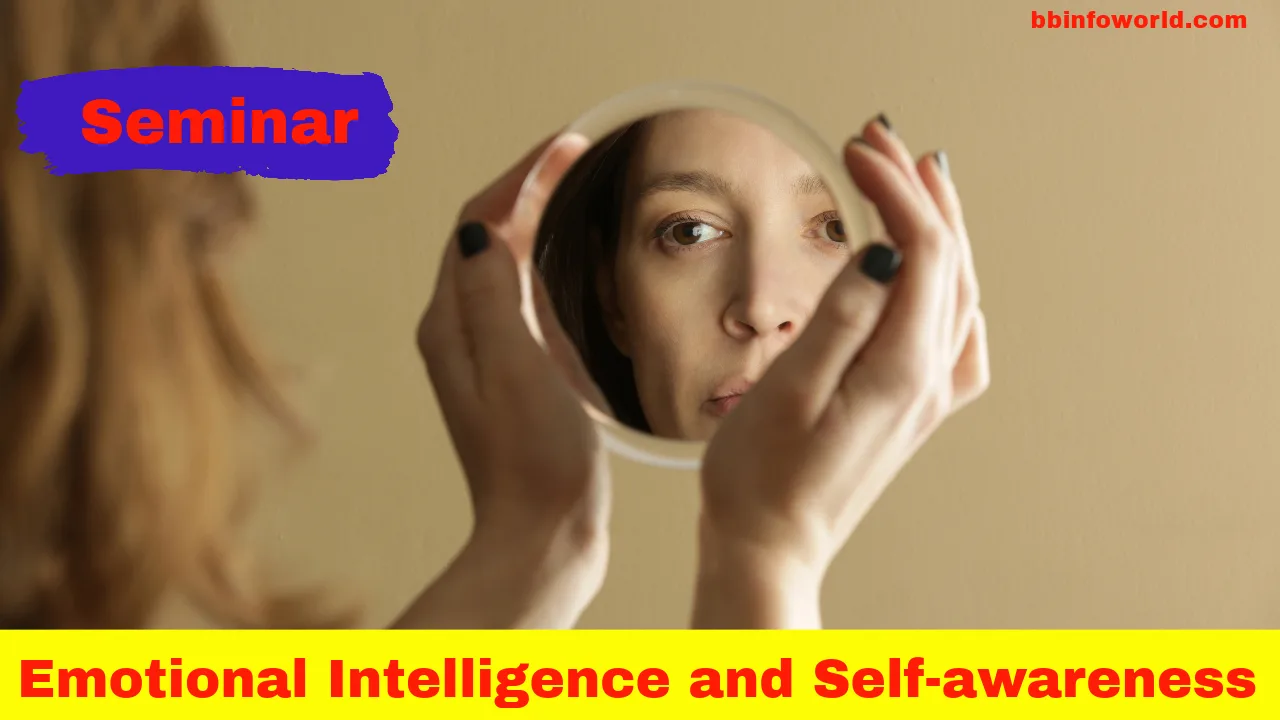
Emotional Intelligence and Self-awareness
Explore the importance of emotional intelligence in personal and professional relationships, and learn strategies for self-awareness and emotional regulation.
Emotional Intelligence and Self-awareness:
Emotional intelligence (EI) refers to the ability to recognize, understand, manage, and effectively use one’s own emotions as well as the emotions of others. It plays a crucial role in personal and professional success, as it influences how we navigate relationships, make decisions, and handle challenges. Self-awareness, a fundamental component of emotional intelligence, involves understanding one’s emotions, strengths, weaknesses, and the impact of these factors on behavior.
Importance of Emotional Intelligence:
Emotional intelligence is recognized as a vital skill in various aspects of life:
- Personal Relationships: EI helps individuals develop empathy, improve communication, and build stronger, more meaningful connections with friends, family, and partners.
- Workplace Success: EI contributes to effective leadership, teamwork, conflict resolution, and adaptability. It enhances communication skills and promotes a positive work environment.
- Decision-Making: Being emotionally intelligent enables individuals to make well-informed decisions by considering both rational and emotional factors.
- Stress Management: Individuals with high EI are better equipped to handle stress, anxiety, and pressure. They can regulate their emotions and maintain a sense of balance.
- Conflict Resolution: EI fosters the ability to understand different perspectives and approach conflicts with empathy and a collaborative mindset.
Strategies for Self-awareness and Emotional Regulation:
- Mindfulness Practice: Engaging in mindfulness meditation or other mindfulness exercises helps individuals become more attuned to their thoughts, emotions, and bodily sensations.
- Self-Reflection: Regularly setting aside time for introspection allows individuals to examine their feelings, reactions, and behaviors, leading to greater self-awareness.
- Journaling: Keeping a journal helps in recording thoughts and emotions, identifying patterns, and gaining insights into one’s emotional responses.
- Feedback Seeking: Actively seeking feedback from others can provide valuable insights into how one is perceived and how emotions impact interactions.
- Emotion Labeling: Learning to accurately label emotions as they arise increases emotional awareness and aids in understanding triggers.
- Empathy Development: Practicing empathy involves understanding and sharing the feelings of others, enhancing interpersonal connections.
- Stress Management Techniques: Learning stress management techniques like deep breathing, progressive muscle relaxation, and time management helps in emotional regulation.
Conclusion:
Emotional intelligence and self-awareness are skills that can be developed and cultivated over time. By exploring and improving these skills, individuals can build better relationships, navigate challenges with resilience, and lead fulfilling personal and professional lives. Recognizing the importance of emotional intelligence and incorporating strategies for self-awareness and emotional regulation can significantly contribute to personal growth and success.



